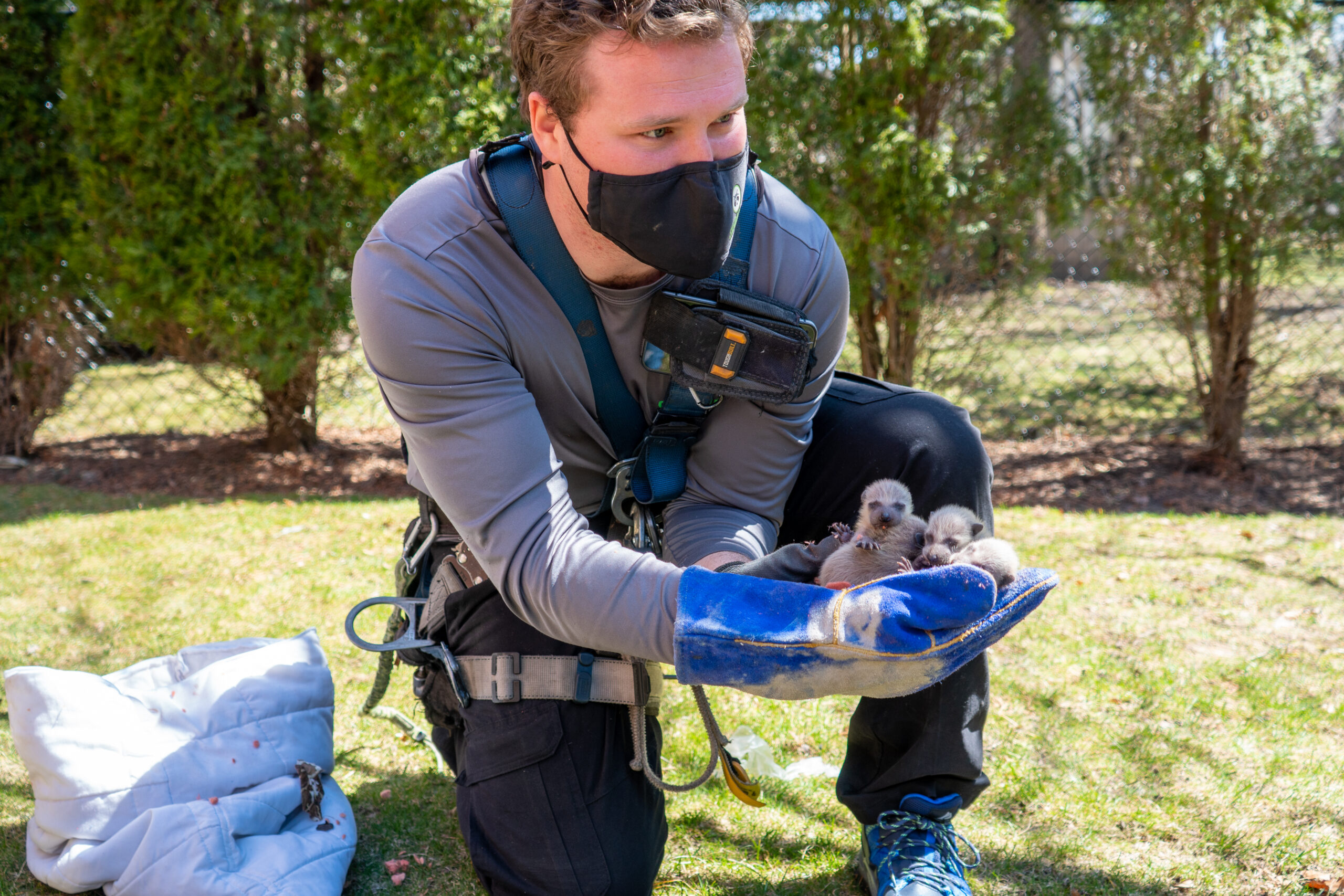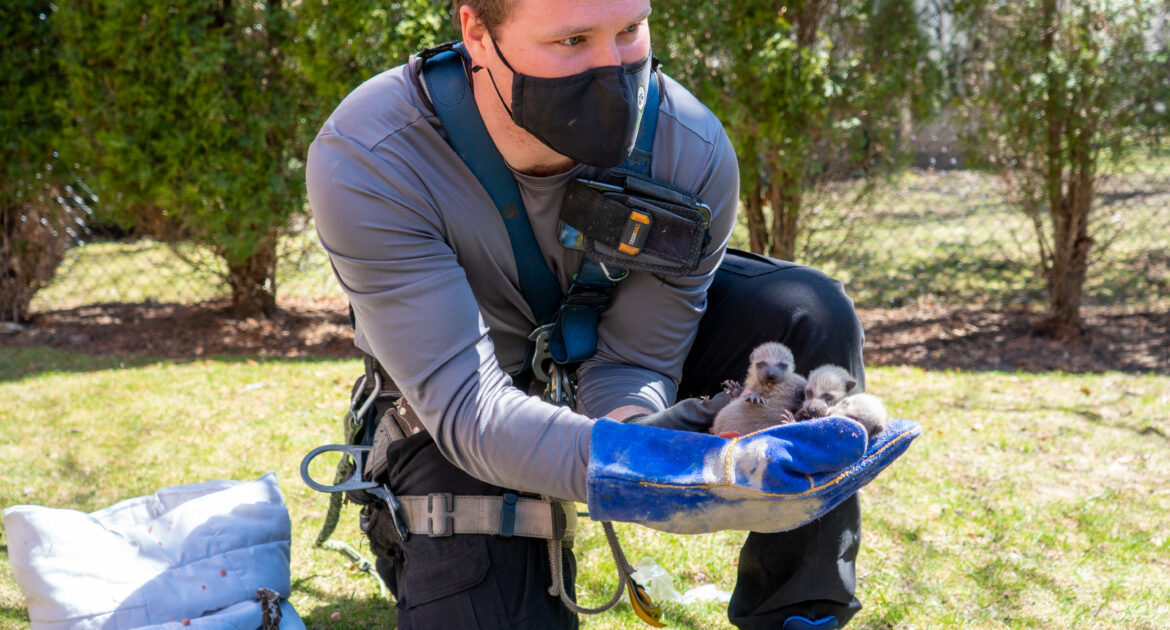Because raccoons are notorious scavengers, they can thrive in urban environments as easily as in dense forests. The animals may look cute and cuddly, but they are one of the types of wildlife that is frequently seen in and around Edgewater homes. Knowing how to identify a potential raccoon infestation is important so you know when to take quick action for raccoon removal in Edgewater.
Raccoons are always looking for easy sources of food, so they sometimes enter homes when searching for a warm place to give birth. Many houses offer plenty of quiet places that female raccoons can use as dens but having the animals as roommates poses risks to the health of you and your family. Understanding the risks of living near raccoons can help you understand why you need to remove them as soon as you notice signs of a raccoon infestation.
Health Risks for Humans
Raccoons are nocturnal, so they are rarely active during the daytime hours when humans are frequently out and about. However, they often carry rabies and transmit the disease through bites, so if you ever have an altercation with a raccoon, you should seek medical attention immediately to make sure you have not been exposed to rabies.
Another issue with raccoons is that they can spread other contagious diseases through their droppings. Even the simple task of cleaning up raccoon feces may expose you to a host of diseases, so it is best to keep raccoons out of your home and avoid droppings whenever possible. If you are dealing with a raccoon infestation in your house, make sure to clean and sanitize the affected area thoroughly after removing the creatures.
Home Damage Risks
Raccoons are notoriously dexterous. They can figure out locks, unlatch gates, and claw holes in siding to climb through and access homes. While the possibility of contracting a dangerous disease is the most concerning aspect of having a raccoon living in your house, you also need to be worried about your property. A raccoon can cause a wide variety of damage, including:
- Knocked-over trash cans
- Stolen vegetables from your garden
- Holes in siding
- Dens under porches
- Damaged bird feeders
Health Risks for Pets
Raccoons prefer to avoid direct interactions with humans, but sometimes they come in contact with dogs and cats because they are trying to eat left-out pet food. Raccoons typically run from large dogs, but they do attack when they feel threatened. They are more likely to attack cats because most felines are similar to raccoons in size.
Unfortunately, raccoons often carry rabies. They can spread the dangerous disease to your beloved pets if they attack them, so it’s best to keep raccoons away from dogs and cats. The best way to avoid attracting raccoons to your property is to keep from leaving pet food out for your outdoor dogs and cats to access whenever they are hungry.
Making your property an unappealing environment for raccoons can deter them so they are less likely to interact with your beloved pets. In addition to keeping pet food properly secured, install a latch on your trash can to keep raccoons from accessing scraps. You can also install motion-activated lights to scare the creatures off of your property.
Call a Professional for Raccoon Removal in Edgewater
Although raccoons look cuddly and lovable, having them in your home poses a risk to you, your property, and your pets. If you notice signs of raccoon infestation in your home and need to know how to get rid of raccoons quickly, contact Skedaddle Humane Wildlife Control to remove the creatures without harming them. Call us today to schedule an appointment for raccoon control services.




